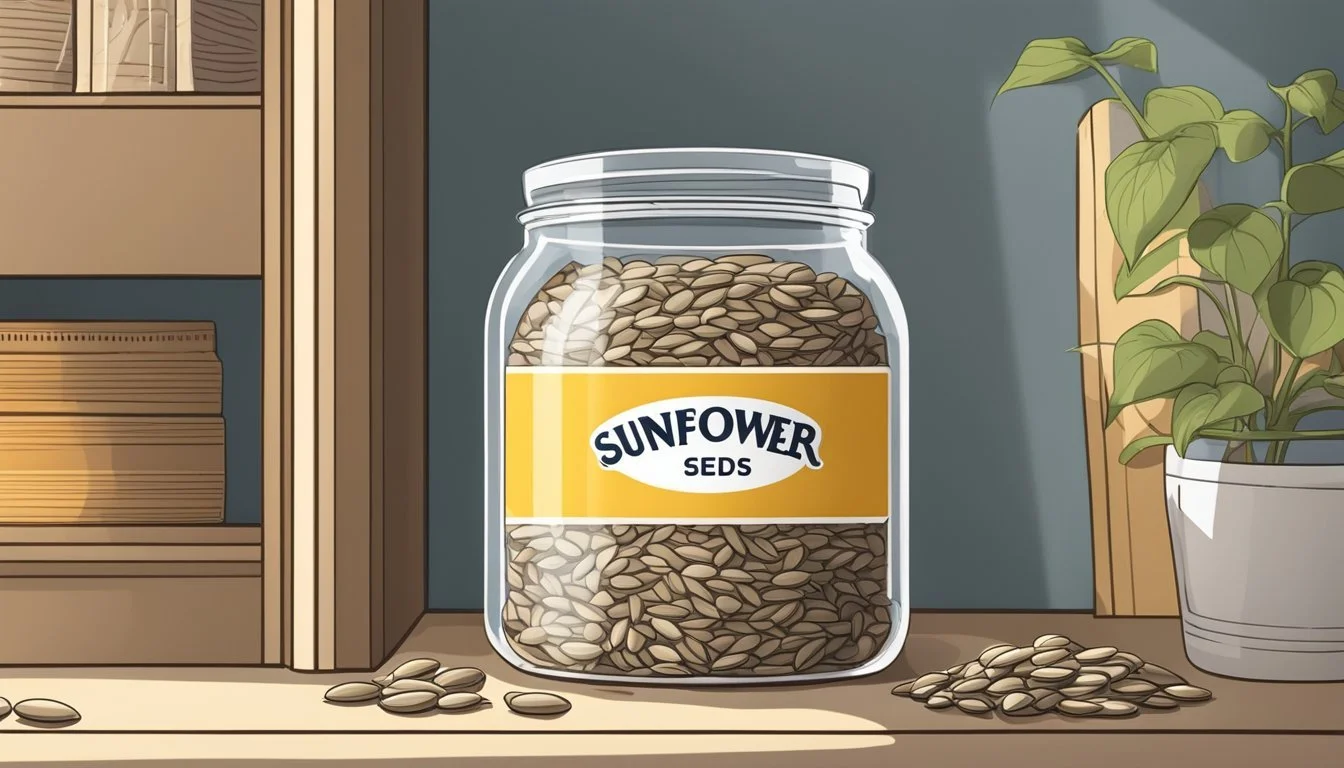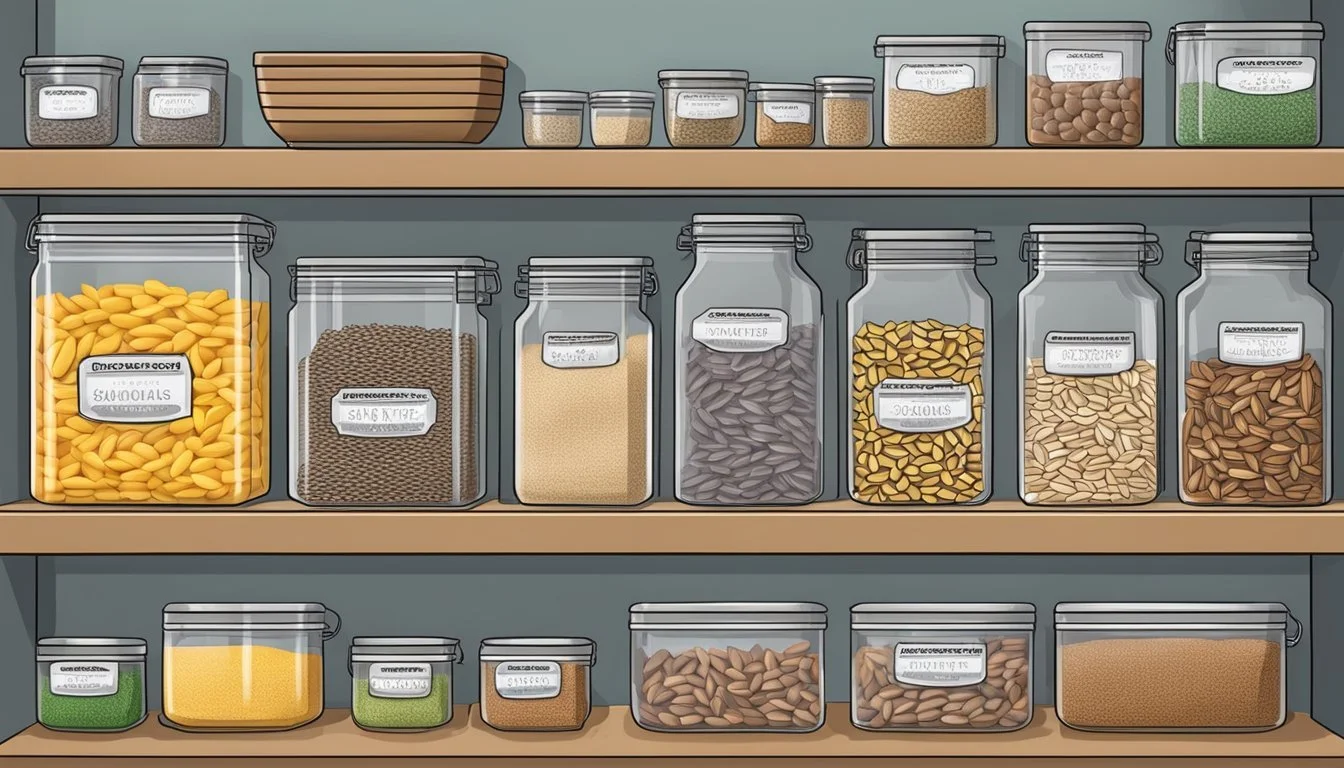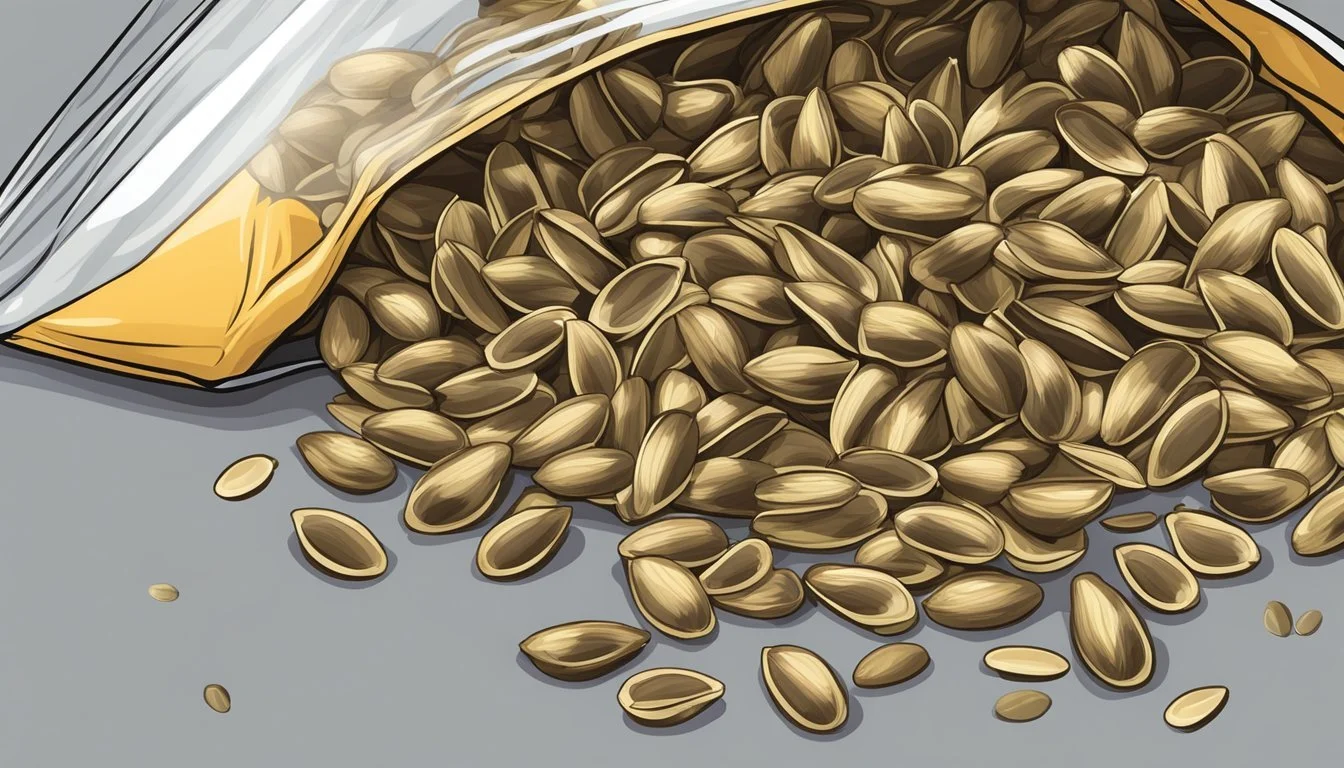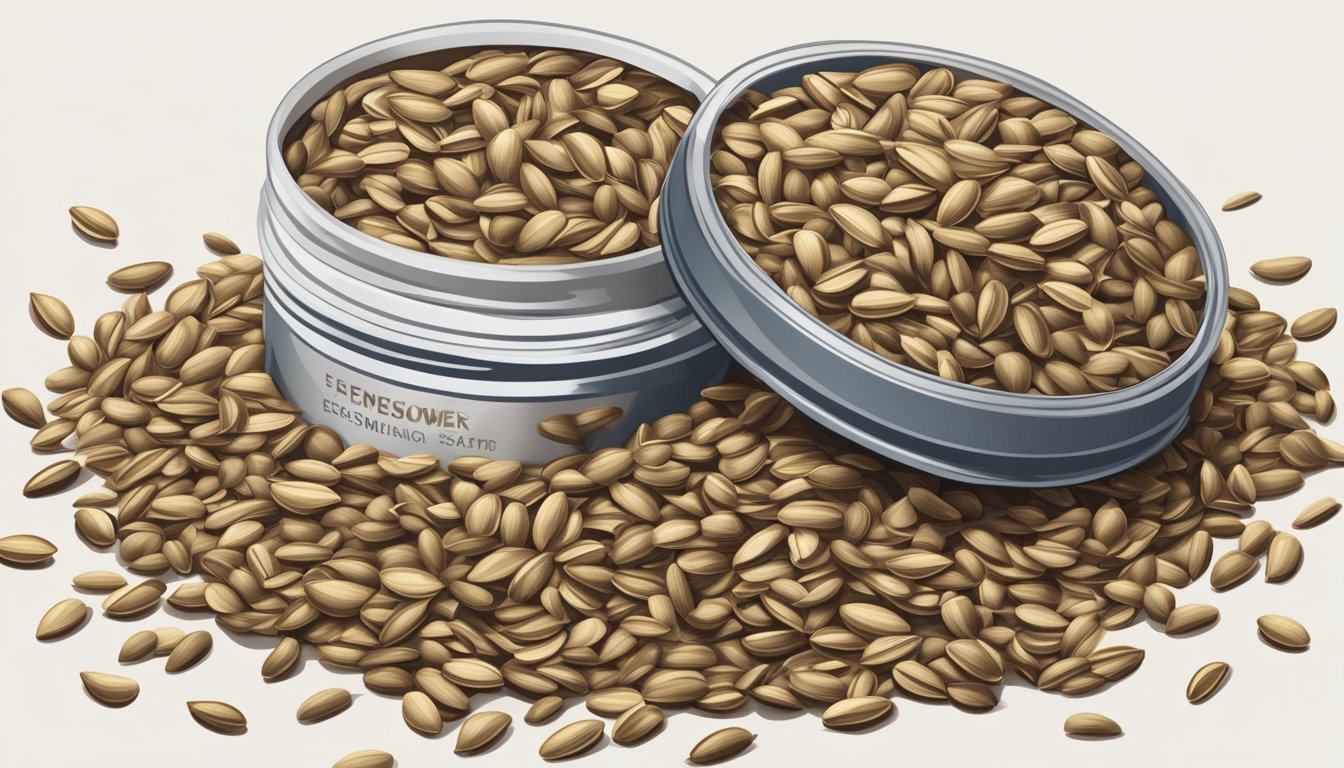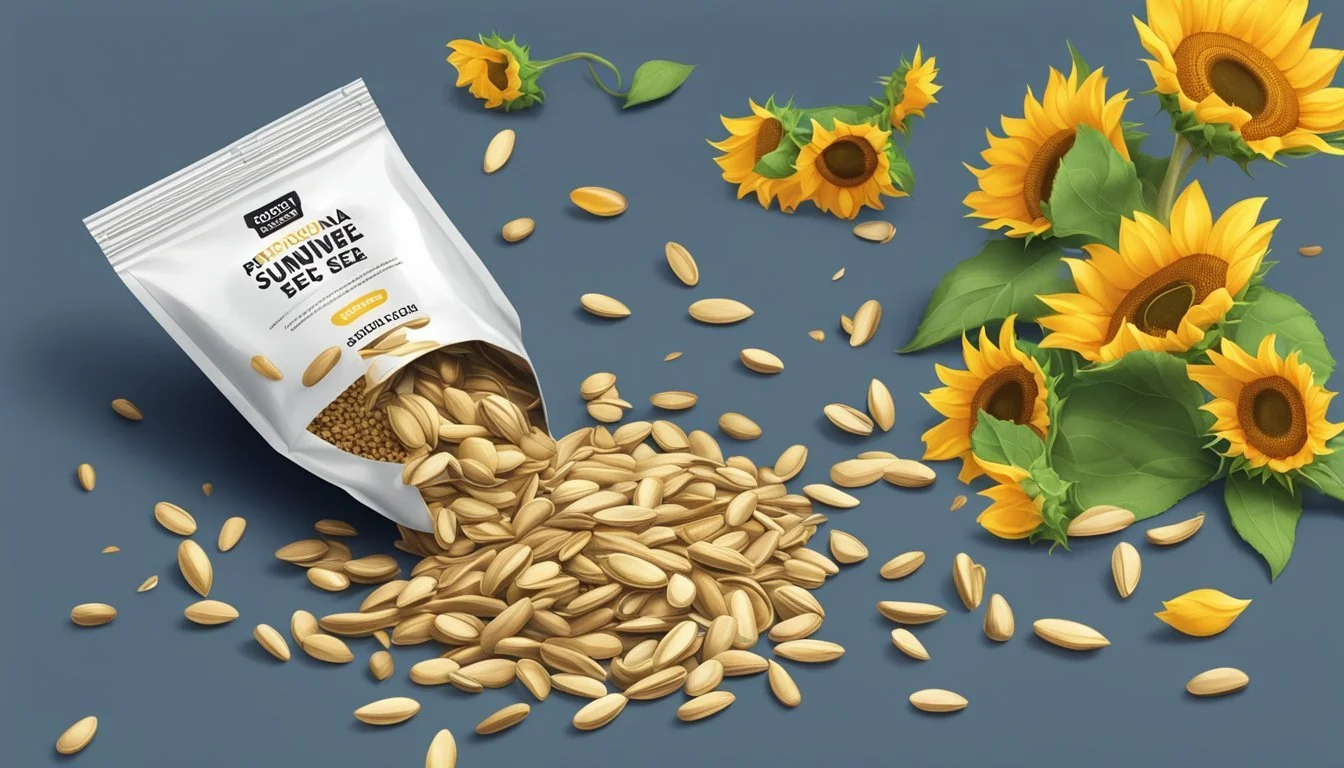Does Sunflower Seeds Go Bad?
Freshness Tips and Shelf Life
Sunflower seeds are a beloved snack around the world, known for their crunchy texture and rich nutritional profile. Yet, many wonder if these seeds go bad and how to tell when they do. Yes, sunflower seeds can go bad, especially if not stored properly, but with the right methods, they can last well beyond their expiration date.
The shelf life of sunflower seeds varies depending on their form—raw, roasted, or shelled—and their storage conditions. Typically, unopened packages can last up to a year or more, while opened and roasted seeds may last up to six months. Proper storage in cool, dry places can significantly extend their freshness.
Spoilage can be identified by changes in smell, taste, or appearance. They should be discarded if any rancid or off-putting odors are detected to avoid potential health risks. Understanding these signs of spoilage ensures that you enjoy sunflower seeds for their full flavor and nutritional benefits, promoting better snacking habits.
Understanding Sunflower Seeds
Sunflower seeds are a nutrient-dense snack packed with important vitamins and minerals like vitamin E and selenium. They offer health benefits due to their healthy fats, protein, and antioxidants.
Types of Sunflower Seeds
There are primarily two types of sunflower seeds: oilseed and non-oilseed (confectionery). Oilseed sunflower seeds are primarily used for processing into sunflower oil. This type contains higher levels of healthy fats. Non-oilseed sunflower seeds are mostly eaten as snacks or added to recipes. They are larger and have thicker hulls compared to oilseed varieties.
Nutritional Profile
Sunflower seeds are known for their impressive nutritional profile. A typical serving of sunflower seeds (1 ounce, approximately 30 grams) contains about:
Nutrient Amount per 1 oz (30g) Calories 160 Protein 5.5 grams Total Fat 14 grams Saturated Fat 1.5 grams Vitamin E 40% of Daily Value Selenium 30% of Daily Value
They also provide a moderate amount of dietary fiber and other essential minerals like magnesium and copper. These seeds are particularly rich in healthy fats such as polyunsaturated and monounsaturated fats.
Health Benefits
The consumption of sunflower seeds offers several health benefits. Their high vitamin E content acts as a powerful antioxidant, protecting cells from damage. The presence of selenium further supports antioxidant functions and thyroid health. The healthy fats in sunflower seeds contribute to cardiovascular health by helping to reduce cholesterol levels.
Additionally, they are a good source of protein, aiding in muscle repair and growth. Regular consumption of sunflower seeds, as part of a balanced diet, may support blood sugar management and reduce inflammation due to their nutrient composition.
Factors Influencing Shelf Life
The shelf life of sunflower seeds depends on several key factors. Proper storage and environmental conditions play a crucial role in maintaining their freshness and preventing spoilage.
Impact of Storage Conditions
Storage conditions are pivotal in determining how long sunflower seeds remain viable. Keeping sunflower seeds in a cool, dry place is essential. Exposure to light, air, and heat can hasten rancidity and spoilage. Sealed packaging or airtight containers are recommended to minimize exposure to these elements.
In the pantry, it's beneficial to store seeds in opaque containers to protect them from light. Vacuum-sealing the seeds can further extend their shelf life by reducing air exposure. Consistently checking for signs of spoilage, such as off smells or unusual textures, ensures the seeds remain safe to consume.
Effects of Temperature and Humidity
Temperature and humidity significantly impact the longevity of sunflower seeds. High temperatures accelerate oil degradation, leading to rancidity. Storing seeds at lower temperatures, such as in the refrigerator, can slow this process.
Humidity introduces moisture, which is detrimental to seed quality. Moist environments foster mold growth and spoilage. Keeping sunflower seeds in a consistently dry environment is crucial. Utilizing desiccant packets or silica gel in storage containers can help manage moisture levels and prolong freshness.
Maintaining a stable, low-humidity environment is key for the shelf life of sunflower seeds. Doing so helps preserve their nutritional value and taste.
Optimal Storage Solutions for Sunflower Seeds
Proper storage of sunflower seeds is essential to extend their shelf life and maintain their nutritional value. Key practices include using airtight containers, refrigerating or freezing the seeds, and choosing the right storage environment.
Airtight Containers
Using airtight containers helps to keep sunflower seeds fresh. These containers prevent exposure to air, which can cause the seeds to go rancid. Resealable bags or jars with tight-fitting lids work well. Ensure that the container is clean and dry before placing the seeds inside. Avoid leaving the seeds in their original packaging once opened, as it offers less protection against air and moisture.
Refrigeration and Freezing
Refrigerating or freezing sunflower seeds significantly extends their shelf life. In the fridge, sunflower seeds can last up to a year. For even longer storage, place the seeds in the freezer, where they can remain fresh for over a year. Use airtight containers or resealable bags to prevent moisture build-up and freezer burn. Label the containers with the date of storage to keep track of freshness.
Location and Environment
Store sunflower seeds in a cool, dark place, such as a cupboard or pantry. Exposure to light, heat, and moisture can cause the seeds to spoil. Choose a location away from the stove, oven, or direct sunlight. Ensure that the environment is dry, as humidity can lead to mold growth and spoilage. Regularly check the storage area to maintain optimal conditions.
Recognizing Freshness and Spoilage
Sunflower seeds can remain edible for an extended period if stored correctly, but recognizing the signs of freshness and spoilage can ensure safety and optimal taste. By paying attention to their appearance, smell, and texture, you can determine whether the seeds are still good to eat.
Identifying Fresh Sunflower Seeds
Fresh sunflower seeds have a firm texture and a slight crunch when bitten. Their appearance should be clean with a uniform color, showing no signs of discoloration.
The aroma is mild and slightly nutty, which indicates they are in good condition. A quick taste test can confirm their freshness, as they should taste pleasant with no off-putting flavors.
Proper storage is key to maintaining freshness. Keeping sunflower seeds in an airtight container in a cool, dry place, or refrigerating them, can prolong their shelf life. Fresh seeds typically show no signs of moisture, which can lead to spoilage if present.
Signs of Spoilage and Rancidity
Spoiled sunflower seeds exhibit several clear signs of spoilage. They may develop a rancid smell, which is sharp and unpleasant due to the breakdown of oils.
The seeds might also feel oily or sticky, indicating that moisture has breached their storage. Visual cues such as discoloration or mold spots are strong indicators of spoilage.
A taste test can reveal a bitter or sour flavor, signaling rancidity. This rancid taste is a result of the seeds' oils degrading over time. It is crucial to discard any seeds showing these spoilage signs to avoid potential health risks. Properly managing storage conditions can help mitigate these issues.
Safe Consumption and Health Implications
Proper storage and awareness of spoilage signs are crucial in ensuring the safe consumption of sunflower seeds. Spoiled seeds can pose health risks, while good storage practices help prevent contamination.
Risks of Consuming Spoiled Seeds
Consuming spoiled sunflower seeds can lead to food safety concerns. Rancidity is a common issue, where the oils in seeds break down into harmful compounds. These seeds emit an unpleasant smell and taste. Additionally, spoiled seeds may harbor bacteria and mold, which can cause health risks such as food poisoning and inflammation.
It is important to check seeds for any visual signs of spoilage, such as discoloration or mold growth. Fresh seeds should have a consistent color and lack any off-putting odors. If you suspect contamination, the seeds should be discarded to avoid potential health risks.
Preventing Contamination
To ensure sunflower seeds remain safe for consumption, storage conditions are critical. Keep seeds in an airtight container to protect against moisture and pantry bugs. Store them in a cool, dry place away from direct sunlight to prevent the oils from becoming rancid.
Freezing sunflower seeds can extend their shelf life and reduce the risk of contamination from insects. Periodically check stored seeds for any signs of spoilage. Good storage practices can minimize health risks and ensure that sunflower seeds remain a nutritious part of the diet.
Decoding Sunflower Seed Packaging
Understanding the labels and packaging of sunflower seeds helps ensure proper storage and determine their shelf life. This guidance is essential for both unopened and opened packages to ensure the seeds remain fresh and safe to eat.
Expiration Dates and Labels
Expiration Date: Sunflower seed packages often come with an expiration date. This date indicates the period during which the seeds maintain optimal freshness and quality.
Best By Date: Some packages include a best by date. Although not an expiration date, it provides a guideline for when the seeds are expected to taste their best.
Packaging and Storage: For both shelled and in-shell seeds, packaging plays a crucial role. Unopened packages stored in a cool, dry place away from sunlight can last well beyond their printed dates.
Opened Packages: Once opened, sunflower seeds should be transferred to airtight containers. Proper storage in a refrigerator can extend their shelf life, preventing rancidity and spoilage.
By understanding these labels and storage tips, consumers can maximize the freshness of their sunflower seeds.
Lifecycle of Sunflower Seeds
The lifecycle of sunflower seeds spans from purchase to consumption, with each phase having distinct storage, handling, and usage considerations to maintain quality and freshness.
From Purchase to Consumption
Purchase:
When buying sunflower seeds, check the packaging for the expiration date and any signs of damage. Seeds must be sealed properly to preserve their freshness. Opt for well-known brands to ensure quality.
Storage:
Unopened sunflower seed packages can remain fresh for up to a year if stored in a cool, dark place. Once opened, transfer the seeds to an airtight container. Refrigeration can extend their shelf life up to a year, while those kept at room temperature should be consumed within six months.
Usage:
Before eating, inspect the seeds for any changes in color, taste, or odor as these are signs of spoilage. If seeds have gone bad, they can pose health risks. Roasted seeds have a shorter shelf life due to the oils that can turn rancid. Use them promptly to enjoy their best flavor and nutritional value.


